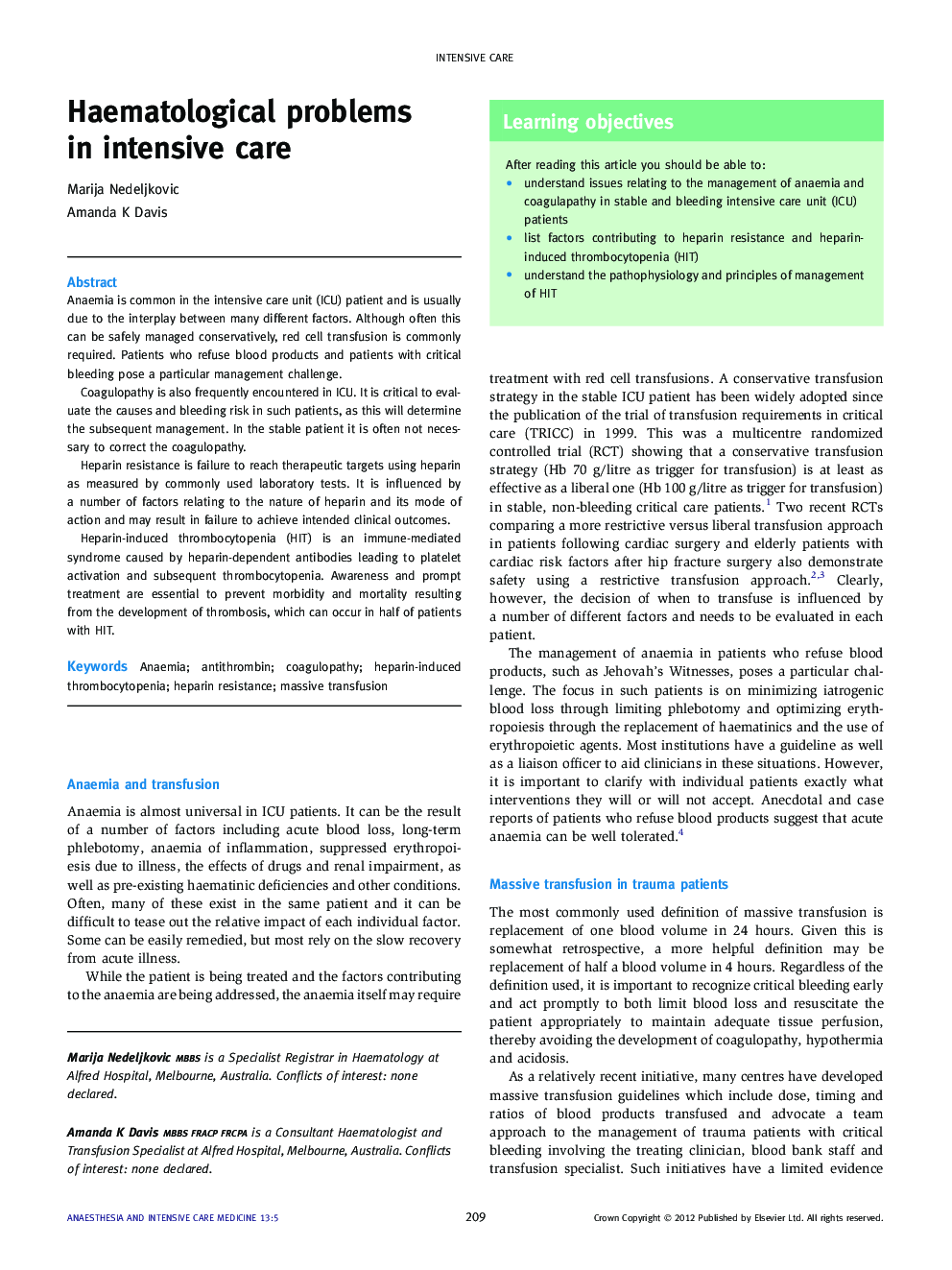| Article ID | Journal | Published Year | Pages | File Type |
|---|---|---|---|---|
| 2742418 | Anaesthesia & Intensive Care Medicine | 2012 | 5 Pages |
Anaemia is common in the intensive care unit (ICU) patient and is usually due to the interplay between many different factors. Although often this can be safely managed conservatively, red cell transfusion is commonly required. Patients who refuse blood products and patients with critical bleeding pose a particular management challenge.Coagulopathy is also frequently encountered in ICU. It is critical to evaluate the causes and bleeding risk in such patients, as this will determine the subsequent management. In the stable patient it is often not necessary to correct the coagulopathy.Heparin resistance is failure to reach therapeutic targets using heparin as measured by commonly used laboratory tests. It is influenced by a number of factors relating to the nature of heparin and its mode of action and may result in failure to achieve intended clinical outcomes.Heparin-induced thrombocytopenia (HIT) is an immune-mediated syndrome caused by heparin-dependent antibodies leading to platelet activation and subsequent thrombocytopenia. Awareness and prompt treatment are essential to prevent morbidity and mortality resulting from the development of thrombosis, which can occur in half of patients with HIT.
